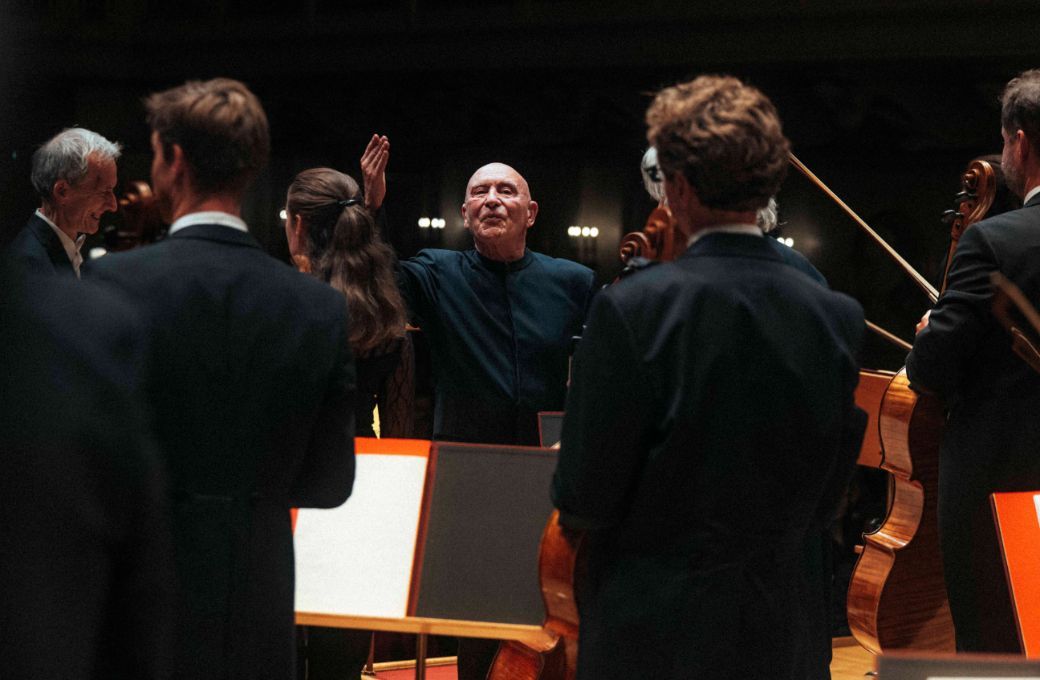Someone once said that with great power comes great responsibility – and while this originally applied to a teenage boy with arachnid abilities, it could be argued that being a chief conductor requires a similar amount of commitment. Ideally, being at the head of a music institution entails reliability, familiarity with a large portion of the repertoire, and curiosity. In the three years of his direction with Berlin’s Konzerthausorchester, much like throughout his entire career, German conductor Christoph Eschenbach has proved that he possesses all such qualities. Leading the orchestra in a concert featuring the world premiere of Christian Mason’s An Ocean of Years, Gershwin’s Concerto in F and Brahms’ First Piano Quartet in Schoenberg’s orchestral arrangement, Eschenbach displayed versatility and confidence that secured him a well-deserved success.

The final part of a cycle of three works titled Time and Eternity, Mason’s An Ocean of Years openly reflects on a popular theme in contemporary music, that of the passing and simultaneous suspension of time that we experience while listening. Built on continuing, still or barely oscillating currents of sound, the score is animated, however, by internal instrumental movements which form more or less elaborate structures and set a specific tone for each section of the piece. Although seemingly episodic, An Ocean of Years is acoustically coherent, inducing in the listener a contemplative state which is eased by the rhythmic repetitions. Commissioned by the Konzerthaus and composed as a gift to Eschenbach for his 80th birthday, the work seemed to be a perfect match for the conductor’s great sensibility for timbral effects. A balance was always preserved between the nearly static flow and its concurrent agitations, which produced a fascinating orchestral texture.
Eschenbach’s friendship with Tzimon Barto, who joined him on stage for Gershwin’s concerto, dates back to the late 1980s, when they first performed together in Vienna and then worked on Barto’s first recording. Ever since, the two have played side by side on several occasions and developed a chemistry which was evident throughout the evening. Eschenbach’s lyrical, composed approach blended with Barto’s extrovert, exuberant playing, resulting in a performance which ranged from swooping melodic arcs to moments of frisky rhythmic verve. Transpiring from Barto’s rendition was his great enjoyment of the concerto, although bridled by a clear interpretative scope which granted the performance a focused quality. But Barto would also follow Eschenbach during some of the score’s more overly effusive passages, when orchestra and soloist would be attuned to the same outbursts of emotion.
Occasionally – yet delightfully – anachronistic, Schoenberg’s orchestral arrangement of Brahms’ Piano Quartet no. 1 in G minor has found favour among audiences and musicians alike due to its timbral appeal and nearly symphonic quality. Indeed, reworking the original score for a much larger ensemble, Schoenberg highlighted the strength of Brahms’ musical construction. In his turn, Eschenbach made sure to pay homage to both composers by calling attention to the structural clarity of the piece as much as to its instrumental texture. As timeworn as such an adjective may sound, the conductor truly did draw a marvellous velvety tone from the orchestra, amplifying and accentuating the palette of Brahms’ quartet. In the solo parts, the musicians reminded the audience of the intimacy of the original chamber piece; but as he approached the end, Eschenbach didn’t shy away from Schoenberg’s percussive extravaganza, closing the concert on an ebullient note.


